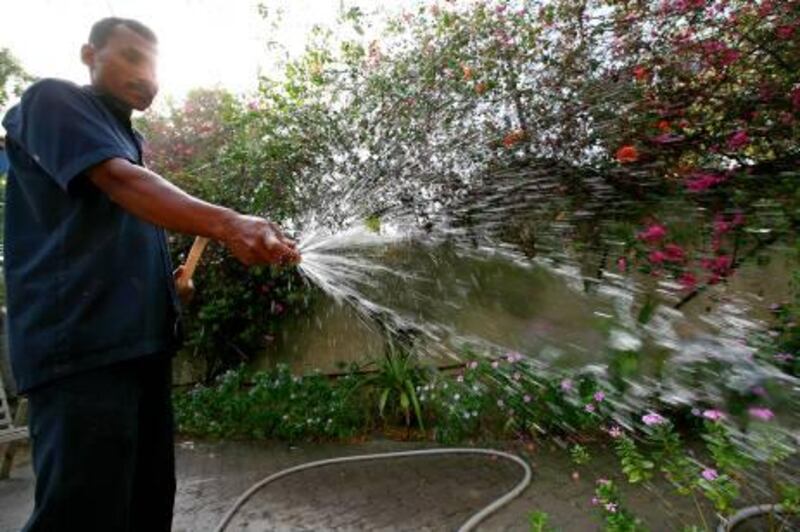Abu Dhabi has already reduced subsidies to farmers and motorists – and soon everyone else will get a signal that the Government’s eye is on them, too.
New utility bills mandated by Abu Dhabi's water and electricity regulator, starting in January, will make consumers aware of just how much the Government subsidises their consumption – and could be a prelude to a tariff increase already under consideration by the Abu Dhabi Executive Council. The price for water has not changed since 1995; for electricity, not since 2005.
With prices frozen for so long while global energy markets soared, consumers in Abu Dhabi might have suspected they were getting a bargain. From January, they will know exactly how much of a bargain.
Nationals will learn for the first time that they enjoy an 86 per cent subsidy, while expats pay half the true cost. If an Emirati family pays Dh559 in a month, the Government actually contributes Dh3,361 towards the cost of providing their power and water – what will appear as the "waived cost" on the new bills.
"Building awareness around real costs can increase the readiness of the people to prepare for higher prices which are closer to the real cost," said Christian von Tschirschky, a regional utilities expert with the management consultancy AT Kearney.
Other emirates, which do not enjoy such abundant energy resources, already charge much more for utilities.
Drafts of future utility bills at the Abu Dhabi Distribution Company already include a three-tiered tariff rate that would penalise customers for excessive use by charging a higher rate for units above a certain threshold. Contemplating higher water and electricity bills is part of a wider government plan to reduce subsidies and waste.
In July, the Federal Government raised the price of petrol for the second time in two months. In September, Abu Dhabi cut a subsidy to farmers over the water-thirsty Rhodes grass in Al Gharbia that had cost Dh800 million (US$217.8m) in its first year.
The emirate replaced the subsidies with a smaller incentive programme to encourage farmers to follow regulations or even move to growing organic dates. But this time the focus is on the larger population – everyone who pays for water or electricity in the emirate.
"The subsidised prices here are seen as part of the social costs here in the region," Mr von Tschirschky said. "The population in the past has always seen that as a given thing from the Government."
Raising the cost of utilities in the emirate has the potential to release a large sum of money into the Government's coffers and even attract more eco-friendly developers to the emirate.
Buildings designed for environmental sustainability, which require larger budgets for initial construction but promise a return on investment through savings on utilities, often depend on high energy rates to make them economically viable.
"Energy is too cheap in this part of the world," said Stephan Rosenthal, the managing director at Bayer Middle East. Through its EcoCommercial Building Programme, Bayer has worked on Masdar City, a carbon-neutral development being built near the capital.
"With the ambitious growth objective that the region has, we believe that this will change," Mr Rosenthal said.
business@thenational.ae





